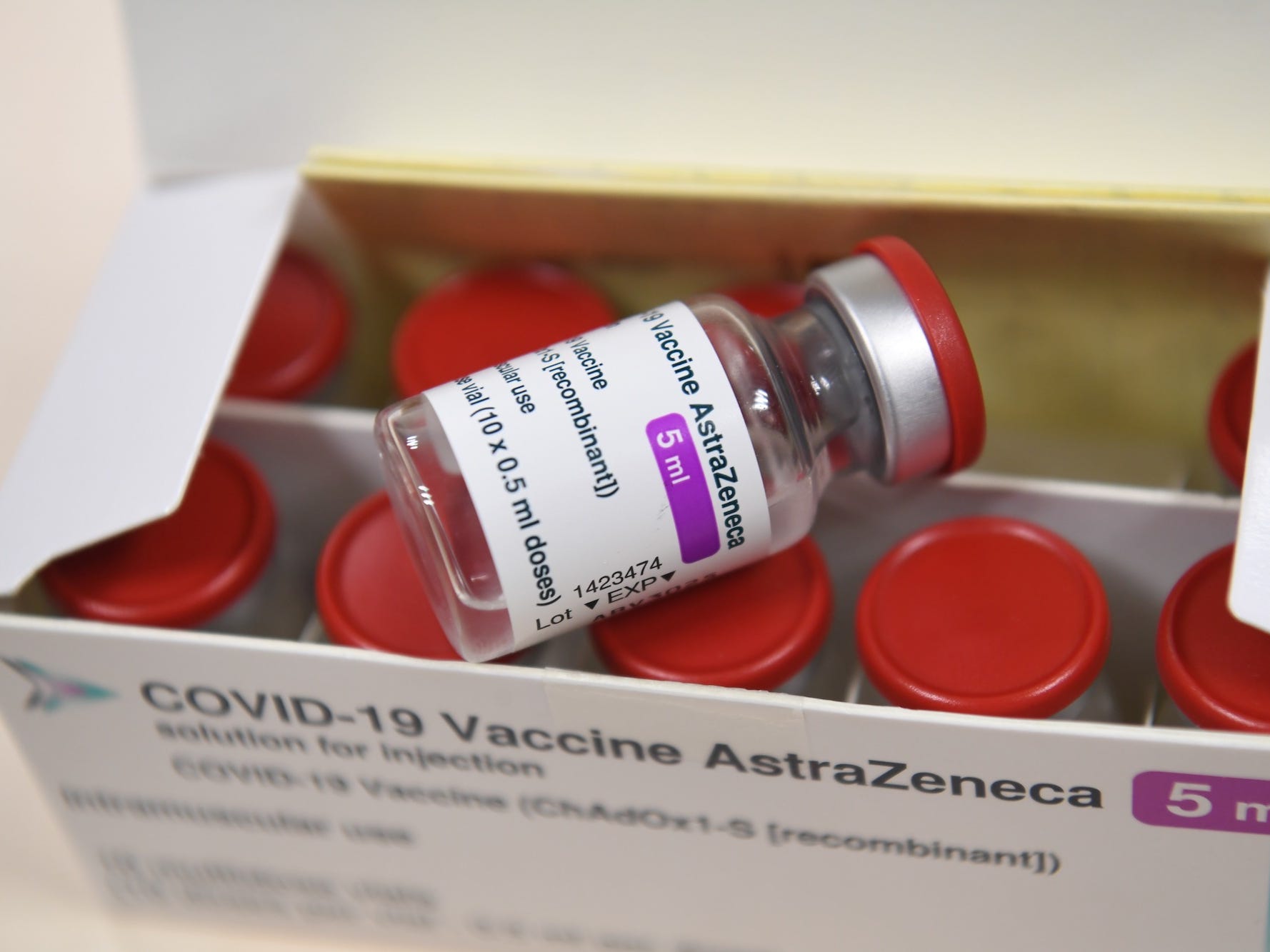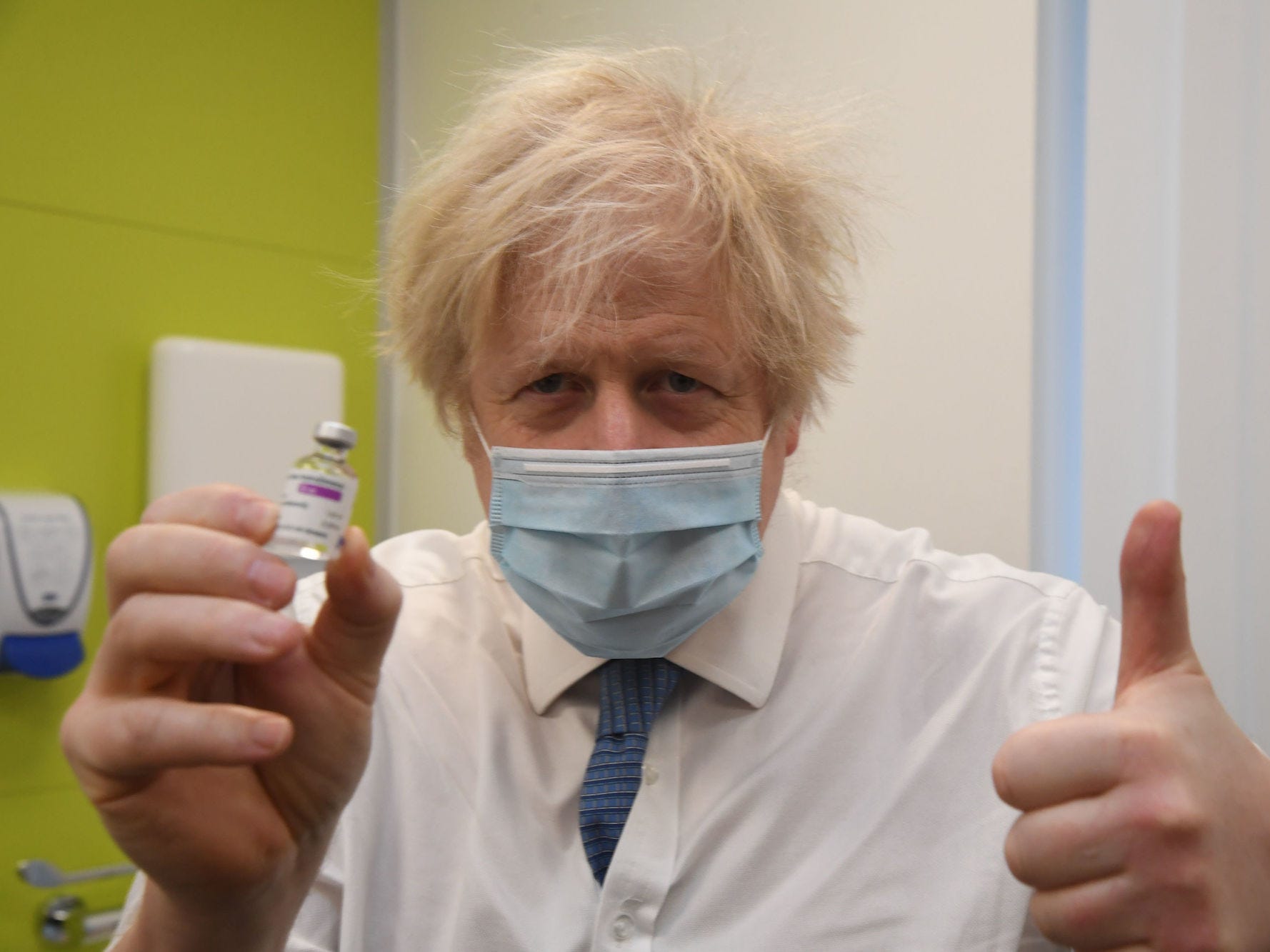
ALAIN JOCARD/AFP via Getty Images
- During vaccine rollouts in France, Germany, and the UK, some are insisting on a particular shot.
- In Europe, officials are struggling to give out AstraZeneca’s jab, and cite concerns about performance.
- In the UK, reports are mixed. The Washington Post suggested that some prefer the AstraZeneca vaccine, calling it the “English” one.
- Visit the Business section of Insider for more stories.
People receiving vaccines in the UK, France, and Germany are complicating the rollouts by trying to insist on receiving a particular shot, according to numerous reports.
In continental Europe, officials have pointed to unfilled appointments and empty vaccination hubs when the AstraZeneca dose is on offer.
The resistance appears to stem from trial data which suggested that the vaccine is less effective than shots made by Pfizer, the other vaccine being widely used in Europe.
In the UK, reports are more mixed, with anecdotal reports of some people insisting on the Pfizer jab, while others push for the the AstraZeneca one, citing its local credentials.
Here is what’s happening:
- In Germany, hundreds of thousands of doses of the AstraZeneca shot are going unused, per Yahoo! News. Around 200 people were showing up for 3,800 daily appointment at a Berlin center offering only the AstraZeneca shot, the Times of London reported.
- Officials in Austria and Bulgaria also reported public resistance to the AstraZeneca vaccine, France24 reported on February 18.
- In Italy, teachers and police have expressed concerns about the AstraZeneca vaccine, the Wall Street Journal reported.
- In France, officials staggered the vaccination of health workers after reports that several workers called in sick over flu-like side effects. Last month President Emmanuel Macron cast doubt on its effectiveness.
- In Sweden, two regions temporarily suspended the rollout of AstraZeneca vaccines after a quarter of 400 hospital staff having received one jab reported mild side effects.
In the UK, the picture is more complicated. According to The Washington Post, some Britons are canceling and rebooking vaccination appointments to secure the Pfizer shot.

Jeremy Selwyn-WPA Pool/Getty Images
The outlet said the strategy was based on rumors and insider information about which centres have what doses.
It also pointed to the opposite phenomenon - people insisting on getting the AstraZeneca shot because AstraZeneca is jointly headquartered in the UK, and developed its vaccine alongside the University of Oxford.
A doctor told the BBC on Sunday that his whereas his medical colleagues have a slight preference for the Pfizer vaccine, his patients tend to have a preference for the Oxford/AstraZeneca "made-in-Britain" vaccine.
Differences in data on efficacy
The dynamic appears largely shaped by data from the Phase 3 trials of both vaccines.
As reported by Insider's Isabella Jibilian in December, question were raised about AstraZeneca's trials, when the company announced that the vaccine was 62% effective after two full doses, but 90% effective after half a dose and a full dose of the vaccine.
British regulators now put the efficacy of the vaccine at 70%, The Washington Post reported, and the European Medicines Agency at 60%.
Compared with the reported 95% efficacy of the Pfizer vaccine in its trials, it would be easy to believe that the AstraZeneca vaccine does not perform as well.
However, Andrew Pollard, the lead scientist on the AstraZeneca vaccine development, told the Post that figures are not directly comparable.
"Unless you run the [Pfizer and AstraZeneca] trials head-to-head, you don't really know whether a 95 percent figure on trial and 62 percent in another trial mean the same thing," Pollard told The Washington Post.
Results from such a head-to-head trial should be available soon, he said.
Both the Pfizer and AstraZeneca vaccines "give very high protection against severe disease" and appear to "have good safety profiles" said the UK's Joint Committee on Vaccination and Immunisation, where Pollard is a lead scientist.
Pollard told the Post that he would personally "have whichever vaccine offered".
Real-world data in countries where the vaccines have been rolled out, such as Israel and the UK, are starting to provide more clarity on the vaccines effectiveness.